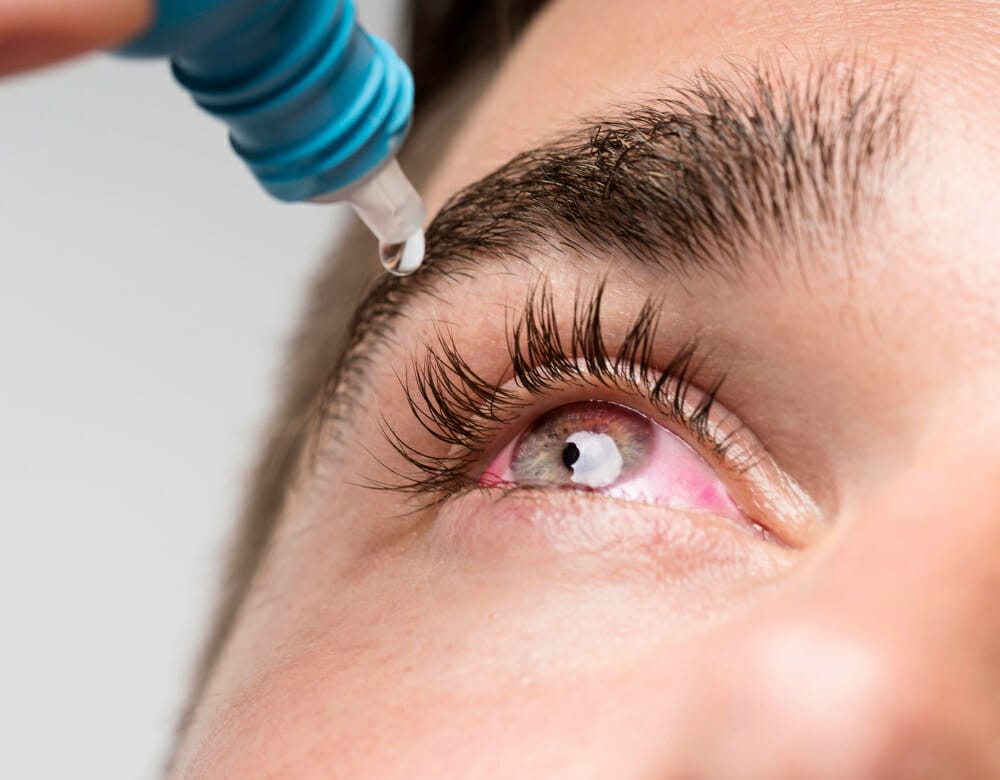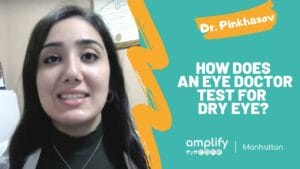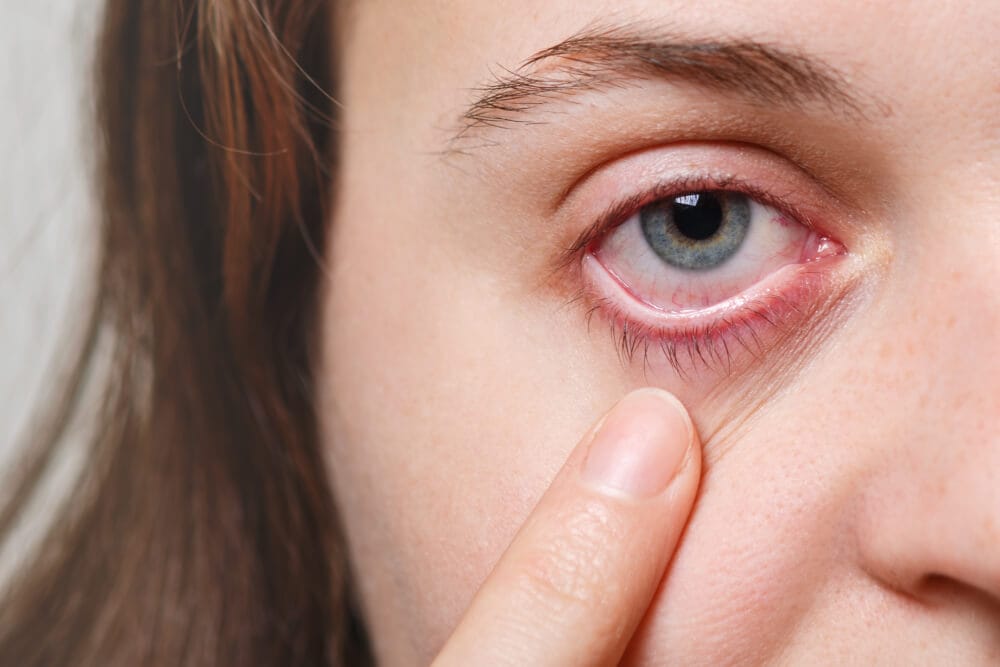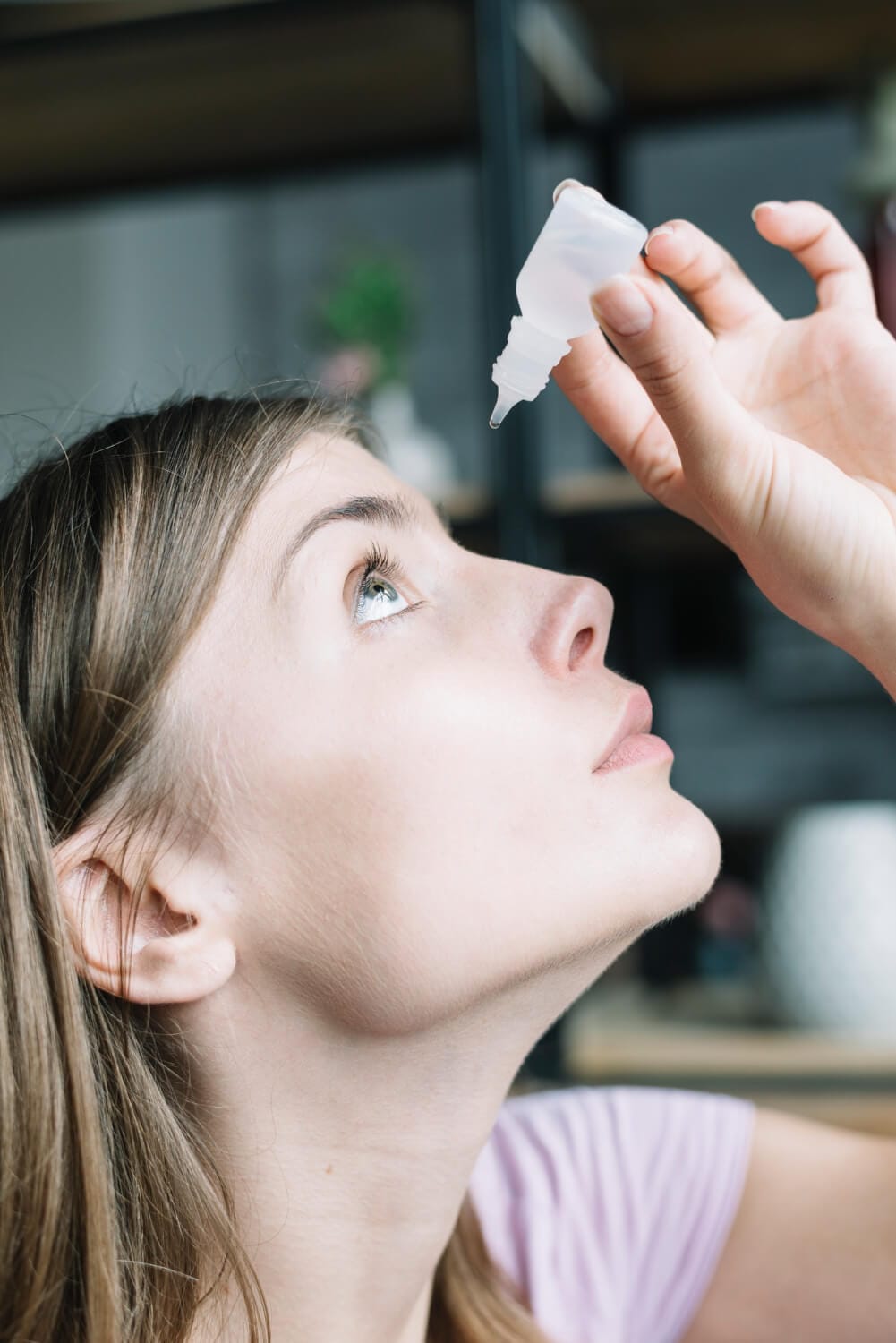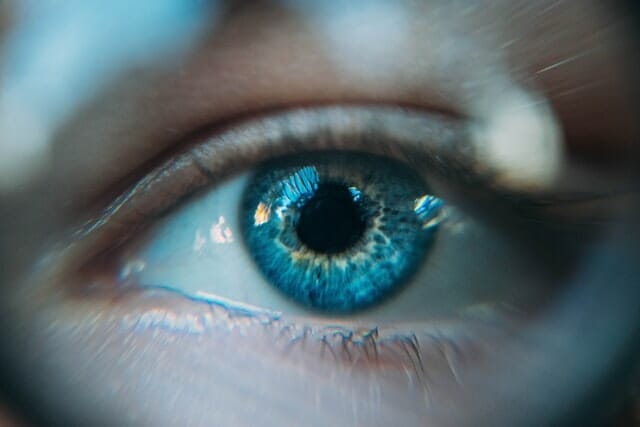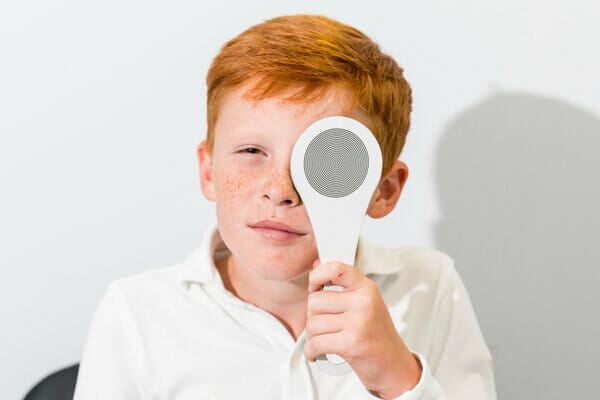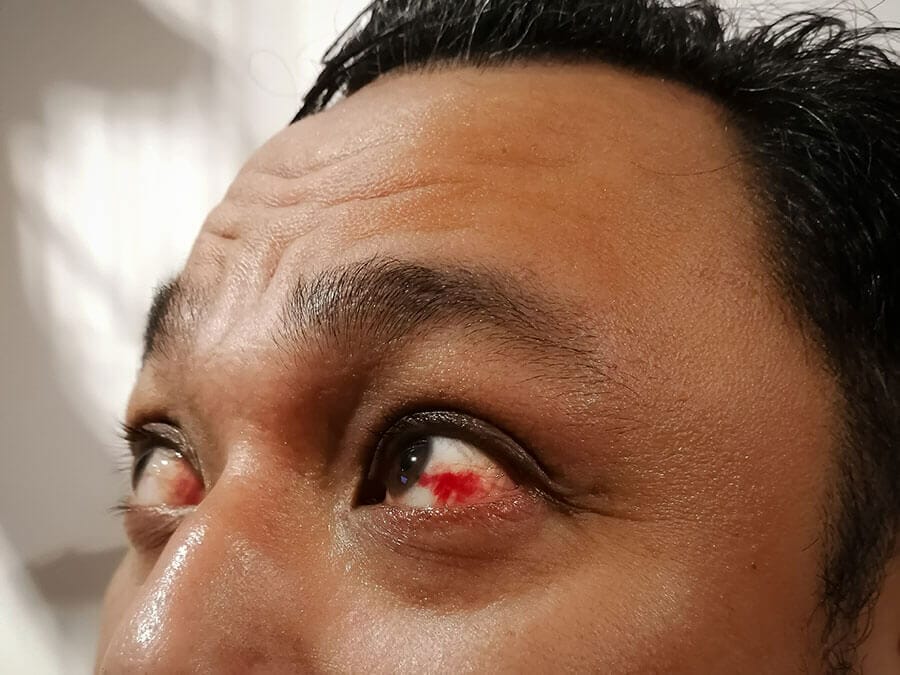Typically first your eye doctor would take a thorough case history reviewing your symptoms and the severity of the symptoms. (Some symptoms of dry eyes include burning, itching, excessive tearing, gritty/foreign body sensation, eye discomfort, inflammation, or blurry vision.) Your eye doctor will also review your medical history, any medications you’re taking, your day to day activities, as these can all contribute to dry eyes as well. Then a thorough dry eye evaluation will be conducted. Your eye doctor will look at your eyes under a microscope where they will assess your meibomian glands on your upper and lower lid margin. To get a better image of the inside of your meibomian/oil glands your doctor may also take an image of them using a Lipiscan/Meibography. If any of your oil glands are capped, truncated or atrophied this may indicate you have dry eyes. Also your tear layer will be assessed, typically a sodium fluorescein dye would be used. Here we can examine your tear break up time (TBUT), tear meniscus height, and blink rate. Various other tests can be used to detect dry eyes such as Lissamine green and Rose Bengal dye, Schirmer test 1 and 2, and Phenol red thread test. For the Schirmer Test your eye doctor will place a strip of medical paper inside of your lower eyelids, and the paper will then absorb your tears, which will show us the amount of tears you have. For the phenol red test it’s the same concept as the Schirmer test but instead a thin red thread string is placed inside your lower eyelids to determine the volume of your tears. If any of these values are below normal this can also help us detect dry eyes.

